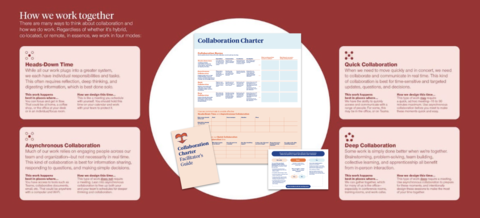- blog
- CCO Profile
This is the first in a new series of posts featuring CCO stories, examining their priorities and challenges and sharing their experiences.
With the worst of COVID-19 behind us (we hope), companies are grappling with its downstream effects - inflation and a looming recession, a tight labor market and new employee expectations. As the nation’s largest health insurer, UnitedHealthcare and its CCO, Kirsten Gorsuch, appreciate the added urgency of delivering against the company’s mission and vision - simpler customer experiences, more affordable options and better care and patient outcomes. More than ever, achieving those aims demands a focus on its 135,000 employees to attract the best talent and keep them engaged.
Healthcare is as vital as it is complex - especially in the U.S. But the work itself is more about humanity. New leadership has offered a chance to refresh the culture, to make it less formal and keep things real by showing people as they are - happy, sad, serious, funny, etc. Cultivating that environment means an emphasis on authenticity. Kirsten tells me the new UnitedHealth Group CEO (the parent company to UHC and Optum) has been known to eschew a suit and tie for a quarter zip and red Adidas kicks, even in investor meetings. “We talk a lot about people being their authentic selves,” she says. “How many people’s authentic self is wearing a suit and tie?”
This people-centric mindset is imbued in employee communication. A video welcoming employees back to the office shows leaders jokingly scrambling around cleaning, excited for their return. Another mixes employee stories during the pandemic with them hearing words of gratitude from their colleagues. Most moving to me was the story told by a father whose son died by suicide (Note: The video may be difficult for those who are triggered by discussions of suicide.) He started an ERG at UHC for parental support on mental health issues, pointing out his son’s story might have turned out differently had that resource existed for him when he needed it. The ERG saw triple the employee participants in its next call.
Love and levity matter, but actions need to match. Here are three things Kirsten points to as crucial for the company’s people:

Though employee comms does have proof points - like NPS scores, engagement metrics and the like - its internal content includes opportunities for people to comment and discuss with each other, a window into what employees are thinking and feeling, as well as a chance for them to connect and build community.
The company heard employees’ concerns on the Dobbs ruling on elective termination of pregnancy and proactively shared information on the company’s decision to include a travel and lodging benefit for those who need to access services in other states. UHC also recently announced it will eliminate out-of-pocket costs for certain life-saving drugs, including insulin.
Kirsten, a former Page trustee, has been CCO at UnitedHealthcare since 2015. Before that, she was CCO at medical device powerhouse Medtronic. She lives in Minneapolis with her husband and her adorable 13-year old labrador, Sienna. Find her on LinkedIn here.
